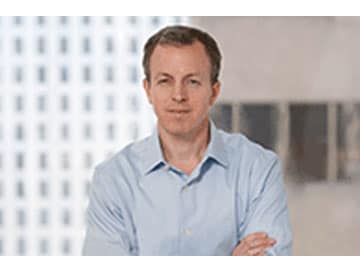
Craig Hanson: Great Entrepreneurs "Simply See Things Differently."
The cofounder of a San Francisco VC firm discusses the value of listening, inspiration, and the key attribute of an entrepreneur.
Craig Hanson is a founding partner at Next World Capital, a San Francisco-based venture capital firm focused on expansion-stage, enterprise tech companies. With offices in Paris, London, and Brussels, Next World aims to help U.S. startups do business in Europe. The firm raised its first fund in 2010 and has $200 million in assets under management. Its most notable investments include BrightRoll, GoodData, and Zuora. Hanson graduated from the Stanford Sloan Master’s Program in 2007 and cofounded Next World with a classmate, Sebastien Lepinard.
Q. In 10 words or fewer, what is the big idea behind your business?
The only U.S. VC operating a full European expansion platform.
Q. What is the best advice you’ve ever received?
Kirk Holland, a general partner at Vista Ventures and one of my early mentors [Stanford GSB, class of 1998] said, “Listen three times as much as you speak.” This is especially important when meeting with entrepreneurs. I’ve noticed many VCs operate using the opposite ratio. We work with an incredibly smart group of people. If you are doing all the talking, you’re not getting a chance to learn, and you’re probably in the wrong room.
Q. What was the most difficult lesson you have learned on the job?
In trying to be all things to all customers, you can lose sight of the value of simplicity and speed. You need to focus more on the customer experience and ease of use, versus trying to give all of your customers everything they want.
One of my companies was an enterprise database software business. They were solving complex problems for a lot of different customers. Over time, the product became very heavy, with too many features. It took a long time to install and lost its ability to be dynamic, flexible, and easy to use. Meanwhile, competitors took a fresh approach. Their products couldn’t do as much as ours, but they were easier to use and demonstrated value quicker. Our company went from being the leader to losing significant market share and settling for a disappointing outcome.
Q. What advice would you give other entrepreneurs on how to build a great business?
Imperfection has a compounding risk. There are many core factors to making a company successful, and you have to continually refine and improve each one. A number of slight errors can add up to a serious problem.
Q. If there were one thing you think is critical to be successful as an entrepreneur, what would it be?
Great entrepreneurs have a unique insight into a solution that challenges conventional wisdom. They simply see things differently.
Q. What inspires you?
The amazing diversity of people I get to meet with. I spend my day meeting and learning from an incredible flow of people with new ideas and contradictory viewpoints.
Q. What is your greatest achievement?
Co-founding and helping build Next World Capital alongside a great team. When we started the firm in the spring of 2009, we were still in the throes of the financial crisis. People were talking about another depression. We felt strongly that we had an innovative model and we could do things better. We decided to invest in enterprise companies at a time when others were tripping over themselves to invest in consumer startups like Facebook, Zynga, and Groupon. Software and data management were seen as boring and too slow.
Q. What do you consider your biggest failure?
As a venture investor, you see a lot of failures. It’s like living in dog years.
Q. What values are important to you in business?
Integrity, honesty, collaboration, and transparency.
Q. What impact would you like to have on the world?
I’m driven by the idea of building innovative leadership companies that will change what people thought was possible.
Q. Why are you an entrepreneur?
I have a deep-seated desire to build and create new things.
Q. What was your first paying job?
I was a busboy in a family-owned Mexican restaurant. You don’t get to talk with people; you are just there to clean up a mess, and you are working incredibly hard at it. There is no glamour. It taught me humility and the value of hard work.
Q. What is the best business book you have read?
Moneyball by Michael Lewis. When the odds are stacked against you, you need to change the way the game is played.
Q. What businessperson do you most admire?
The four CEOs I’m currently working with: Tien Tzuo at Zuora, John Thompson at Virtual Instruments, Roman Stanek at GoodData, and Dave Kellogg at Host Analytics. They are on the front lines of building new companies, trying to disrupt large markets, and competing against mammoth incumbents.
Q. What is the most valuable thing you took away from your time at Stanford?
The flow of ideas from so many diverse people: tech entrepreneurs, Mexican factory managers, U.S. government officials, nonprofit innovators. They challenge your assumptions while you’re in school, and after graduation, they become your network.
QWhat do you think is the greatest innovation in the past decade?
Peer connectivity through mobile devices.
This piece originally appeared in Stanford Business Insights from Stanford Graduate School of Business. To receive business ideas and insights from Stanford GSB click here: (To sign up: https://www.gsb.stanford.edu/insights/about/emails)





